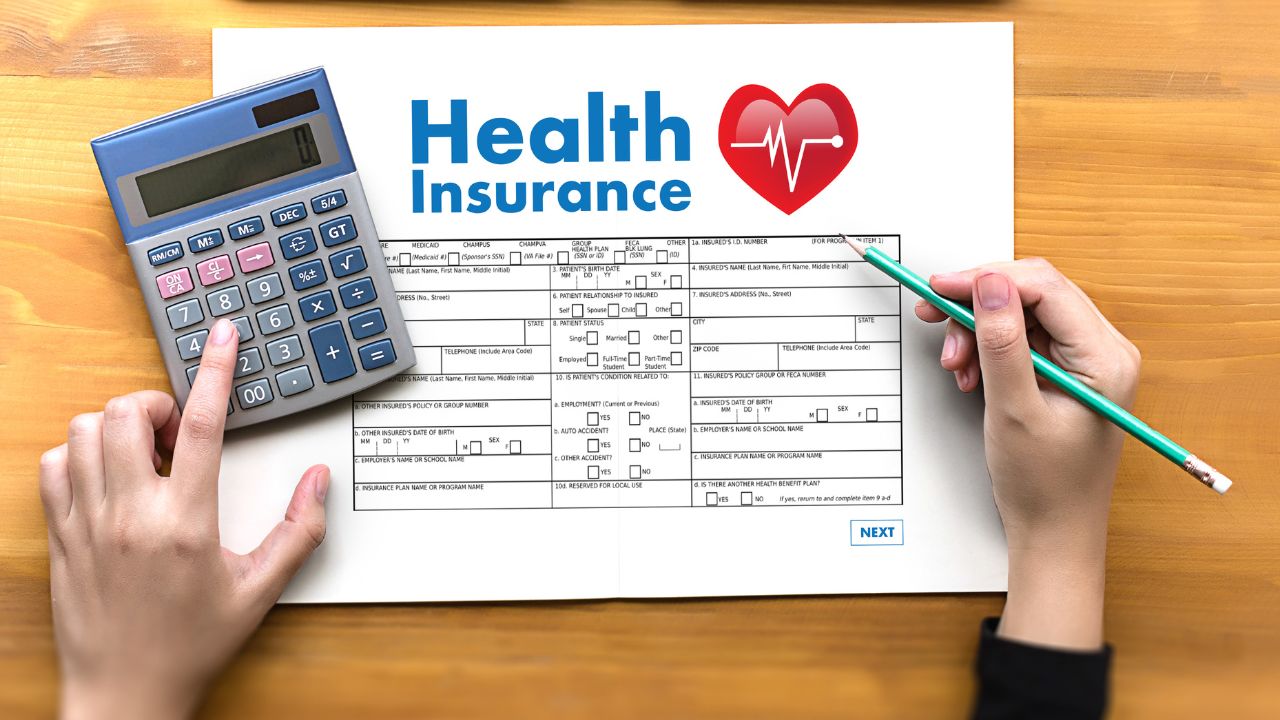(Most recent data as of July 2023)
Know what to expect and do your taxes like a pro this year.
Picking up per diem nursing jobs is a great way to earn premium pay, but that high income is all for naught if you don’t do your taxes correctly.
If you’re new to working as a PRN gig nurse, paying taxes will differ from what you are used to. We want our PRN healthcare professionals to be ready and informed to do their taxes right, so we’ve prepared this in-depth guide to the 1099-NEC for nurses and other healthcare workers picking up PRN shifts.
For Nursa-specific tax information, refer to the following help articles on the Nursa Community:
- Nursa Tax Guide - 1099-NEC: Important information and deadlines about filing your taxes
- Tax Forms (W-9 and 1099): Forms and actions required to file your taxes with independent contractor income
- Keeper Tax: A tax-filing software partnered with Nursa.
What Is a Nonemployee Compensation Form?
Unlike staff employees who typically receive an annual W-2 at tax time, independent contractors receive the nonemployee compensation form, 1099-NEC. The 1099-NEC is sent to both the independent contractor and the IRS and is the official record of contract-work payments received throughout the year.
Do PRN Nurses File a 1099-NEC?
Working PRN shifts through Nursa is different from traditional staff jobs at facilities because you are considered an independent contractor, a gig worker, a freelancer, self-employed, etc. This work classification has different tax implications; you don't have an employer withholding or paying any of your taxes. In summary, PRN nurses must file 1099-NECs.
What Types of Nurses Should File a 1099-NEC?
Nursa issues 1099-NEC forms to all independent contractor nurses who have earned $600 or more in a calendar year by picking up PRN shifts:
- Advanced practice registered nurses (APRNs)
- Registered nurses (RNs)
- Licensed practical/vocational nurses (LPNs/LVNs)
- Certified nursing assistants (CNAs)
- Certified medication aides (CMAs)
- Certified caregivers (CGs)
*The 1099-NECs are sent by January 31 every year.
All 1099-NEC workers must pay self-employment tax if they earned $400 or more in the calendar year. With $400 as the threshold, you'll likely qualify even if you worked only one or two shifts the entire year. (Most PRN nurses earn more than $400 in one shift, and CNAs can earn more than $400 in only two shifts.)
What Does the 1099-NEC Look Like?
You can find the most current version of the 1099-NEC and 1099-NEC instructions on the IRS website, where it is continually reviewed and updated.
What Is the Nonemployee Compensation Tax Rate?
All 1099-NEC self-employed workers are responsible for paying their taxes, which include income tax and the self-employment (SE) tax. The self-employment tax rate is 15.3 percent of income earned and breaks down accordingly: 12.4 percent for Social Security and 2.9 percent for Medicare. This tax applies even if you receive Medicare and Social Security benefits from another job.

Why Do I Have to Pay Self-Employment Tax?
You aren’t being singled out unfairly by the IRS. Everyone has to pay Social Security and Medicare taxes. The difference is twofold: Staff employees have these taxes withheld from their paychecks throughout the year by their employers, so they never even see the money, and their employers pay a portion of the Social Security and Medicare taxes. Conversely, independent contractors receive the total amount paid without withholding taxes, so they see the tax money come and go. Moreover, despite not having an employer contribution to the Social Security and Medicare taxes, the IRS does allow self-employed workers to claim the employer-equivalent portion as a deduction (more on deductions later).
What Is the Income Tax?
Everyone pays taxes—not only 1099 nurses and other self-employed independent contractors.
Staff employees typically have a portion of their paychecks withheld to pay income taxes so that at the time of their annual return, most, all, or excess taxes have been paid. Then, when employees file their yearly taxes, they either have to pay additional taxes, break even, or receive a refund. Independent contractors don’t have this income tax withheld from their paychecks, so they must pay the entire portion of the income tax owed.
Income tax rates will vary based on where you live and work. Not all states have income taxes. Here’s a list of the few that don’t:
Keep in mind that while the above-listed states don’t have federal income taxes, there may still be local community, county, or city income taxes.
What Can You Deduct from 1099 Income?
Federal tax laws have changed recently, and many small tax deductions for healthcare workers are no longer available. However, some states still allow nurses to claim professional licensing fees, continuing education units, and uniforms, so qualifying deductions may vary depending on where you live.
It is best to discuss with a tax professional whether to take standardized or itemized deductions. Nevertheless, there are at least two above-the-line deductions that 1099 nurses can currently claim:
- Health insurance deduction: Per the IRS, “a deduction, for income tax purposes, is allowed to self-employed individuals for the cost of health insurance. This deduction is taken into account in calculating net earnings from self-employment.” This deduction applies whether you opt for itemized or standard deductions. For more information about this deduction, review the stipulations and guidance provided by the IRS by clicking here.
- Employer-equivalent of SE tax: Per the IRS, “you can deduct the employer-equivalent portion of your SE tax in figuring your adjusted gross income.” This deduction also applies to itemized or standardized deductions.
When to File a 1099-NEC
Because nothing is withheld from your paychecks, paying a lump sum all at once can be a challenge for many freelancers. Contractors typically pay “estimated taxes” quarterly to break payments into smaller, more manageable amounts.
Do I Have to Pay Estimated Taxes?
The IRS stipulates that you must pay estimated quarterly payments if your expected tax payment amount reaches or surpasses $1,000. You’ll need your federal tax return from the previous year and Form 1040-ES to determine if your expected taxes will reach the cutoff. Alternatively, you can try the IRS’s interactive quiz.
When Are Estimated Taxes Due?
You must pay estimated taxes quarterly, and the dates vary slightly each year, so setting them on your calendar every year is essential. Generally, first-quarter taxes are due in April, second-quarter taxes are due in June, third-quarter taxes are due in September, and fourth-quarter taxes are due in January.
Can I Do My Own Taxes as a Contractor?
Everyone can do their own taxes. However, we strongly recommend hiring a tax professional with experience dealing with freelancers or independent contractors and their taxes. You might feel the urge to save the money you would spend on hiring someone; however, the reality is that taxes are complicated, and laws change. Doing it yourself could cause you to miss out on a tax credit or deduction that would have been to your benefit.
I Should Have Paid Quarterly Taxes Last Year: What Can I Do?
If you determine that you should have paid quarterly taxes but didn’t, you may be subject to a penalty. Penalties are calculated with a formula that includes the number of days between the missed due date and the late payment date. Therefore, contact a tax professional as soon as possible to start working on your taxes and stop that ticking clock.
More Information on Quarterly Tax Payment Penalties
Form 2210, Underpayment of Estimated Taxes by Individuals, Estates, and Trusts, is required to calculate the penalty for not paying quarterly taxes. However, this calculation is complicated and best left for your tax professional to do. Alternatively, you can wait for a bill from the IRS informing you of the penalty owed and the due date.
Penalty waivers for not paying quarterly taxes may apply in certain circumstances:
- If the failure to make estimated payments was justified by a casualty, disaster, or other unusual circumstance, making it inequitable to impose the penalty
- If the failure to make estimated payments was justified by a reasonable cause and not due to willful neglect, such as a person retiring (after reaching age 62) or becoming disabled during the tax year for which estimated payments were required or in the previous tax year
Talk to your tax professional to see if any of these circumstances apply to your situation. Moreover, if the amount you owe will cause you difficulty, you may be able to ask for a payment plan to settle your tax obligations. For more information about requesting a payment plan with the IRS, click here.
Will You Receive a 1099-NEC from Nursa in January?
Yes any clinicians who picked up shifts and earned $600 or more on the Nursa app in a calendar year will receive a 1099-NEC form to report their income for their tax return. If you have opted in to digital forms, they will be available in the Nursa Wallet by January 31. For all other users, paper forms will be mailed to the address on your W-9. Learn more in our Nursa Community Tax Forms help article.
Get higher pay by picking up shifts on Nursa
Have you been picking up PRN shifts through Nursa? If you haven’t yet, why not? The premium pay associated with 1099 contracting can help you reach your financial goals. When you want additional scheduling and location flexibility, you can find it by adjusting your search filters and browsing the available PRN shifts on Nursa. Download Nursa and pick up high-paying PRN nursing shifts at healthcare facilities near you.








.jpg)





